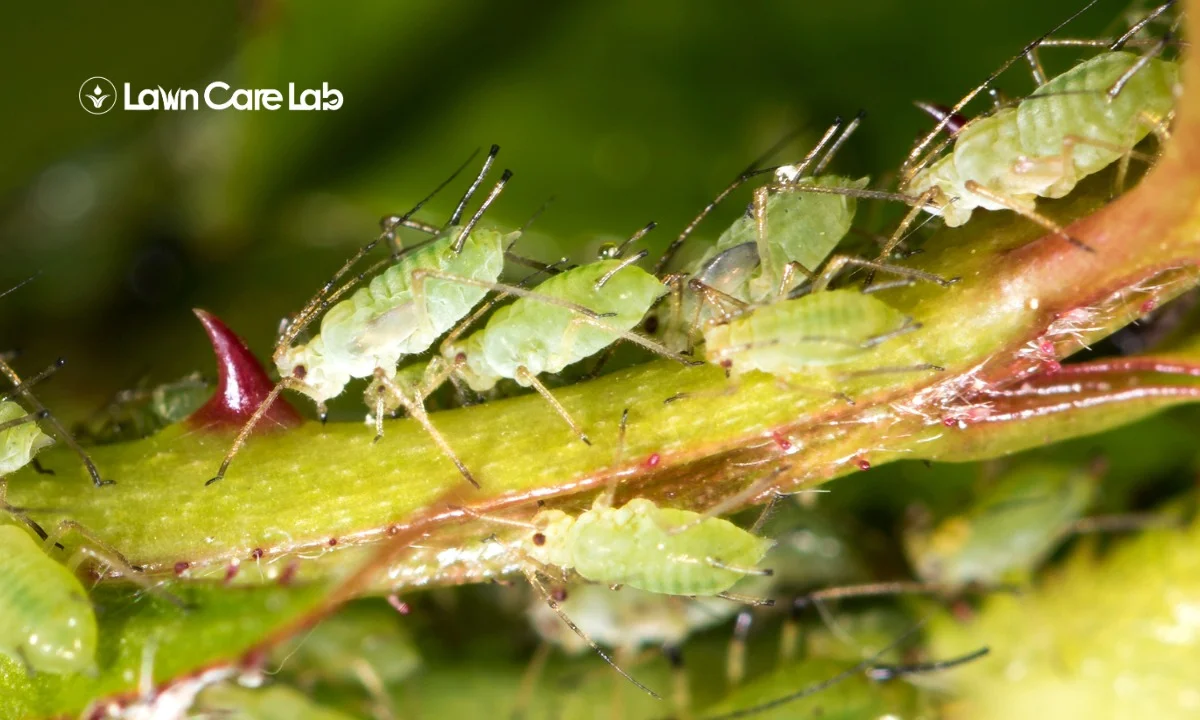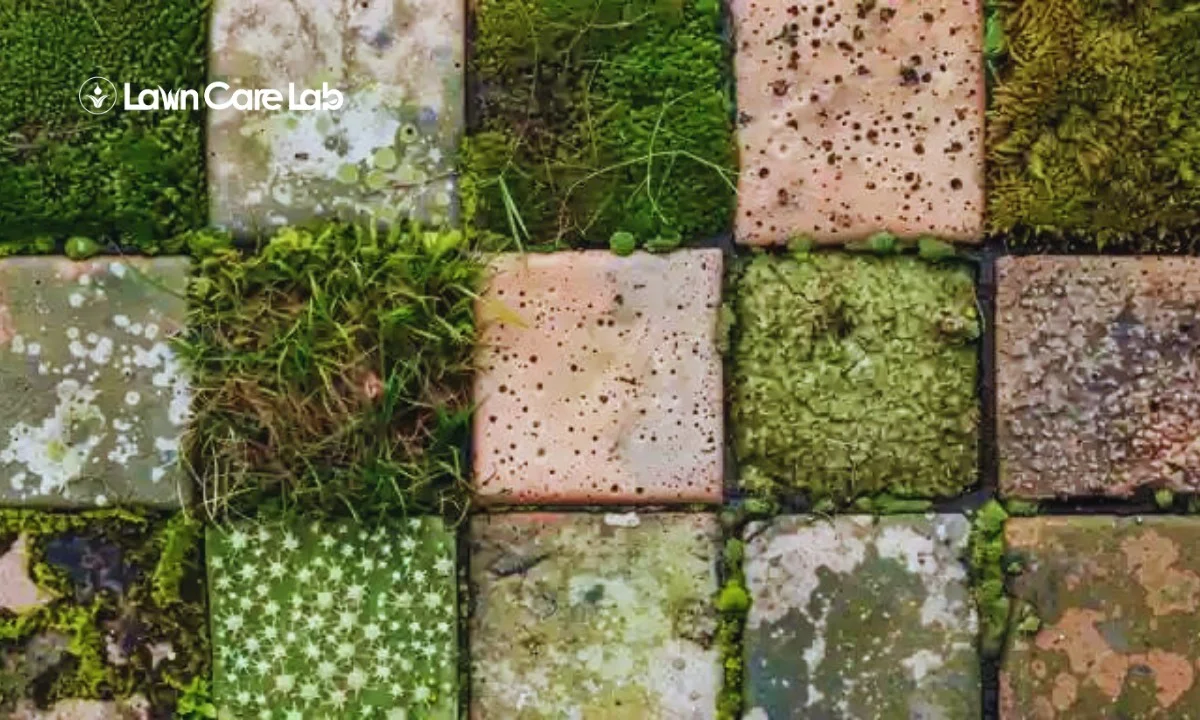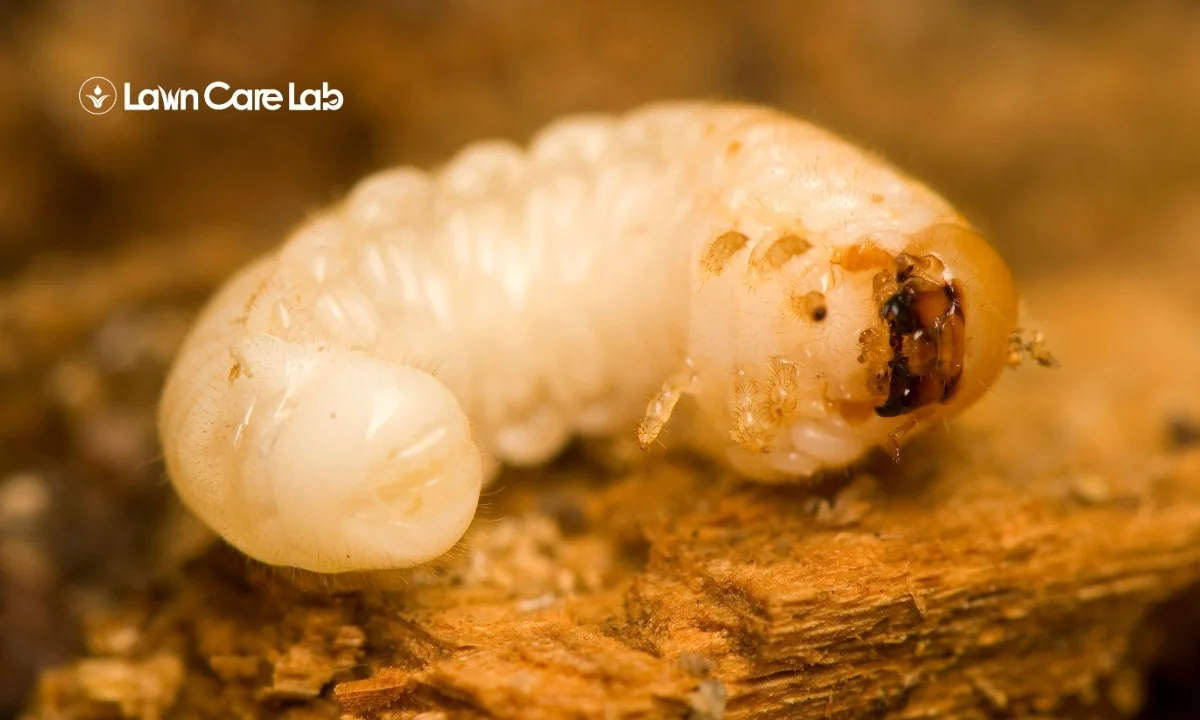Observing your vibrant lawn gradually lose its luster can be disheartening, especially when the pest behind it all is identified as aphids. Stay calm! We are here to provide you with efficient and safe methods to tackle these troublesome insects.
Whether your preference is homemade solutions or calling in the professionals, we have the information you need. The time has come to restore your lawn’s robust health and vibrancy. Let’s proceed with the strategies for aphid control that will revive your lawn’s verdant charm.
Lush lawns don’t happen by accident. They are won in the battle against pests like aphids. Arm yourself with knowledge, and take your turf back!
Table of Contents
The Pesky Aphid Problem
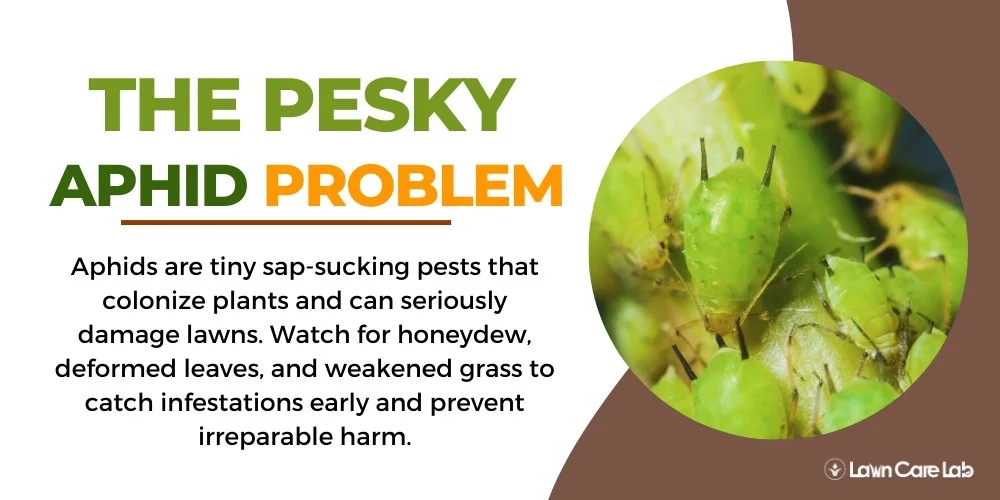
Aphids are small, pear-shaped insects commonly found in gardens and lawns. They can damage plants, making them vulnerable to diseases and other pests.
It is important to remain vigilant for signs of aphid activity, as early detection can prevent irreversible plant damage.
What Are Aphids?
Aphids are small sap-sucking insects that come in different colors and form colonies on plants’ less visible parts like leaves’ undersides or stems.
- Antennae and Cornicles: Aphids are recognized by their long antennae and two backward tubes, known as cornicles.
- Feeding Habit: These pests are known for their feeding habit of inserting their needle-like mouthparts into the plant tissue to draw out the nutrient-rich sap.
- Habitat: Aphids often live in colonies on the less exposed leaves or stems.
By understanding these characteristics of aphids, you’re better equipped to implement an effective pest control strategy.
Now, let’s examine the ways in which aphids can damage your lawns.
How Aphids Damage Lawns
Aphids can harm your lawn by siphoning off plant sap, depriving it of critical nutrients. This can result in noticeable deterioration, like yellowing leaves, curling, or early leaf fall.
Aphids secrete honeydew, a sticky residue that attracts insects and encourages the growth of sooty mold. This fungus blocks sunlight from reaching the grass, disrupting photosynthesis and hindering growth.
Having grasped the potential damage caused by aphids, we can now focus on identifying the indicators of an aphid invasion.
Keeping an eye out for early signs of aphid damage saves your lawn and your pocket from expensive treatments down the line.
Signs of an Aphid Infestation
Early recognition of aphid infestation is key. Knowing the signs can protect your garden.
Consider these three primary indicators:
- Watch out for aphids in your garden, as they are tiny, delicate-bodied bugs in various shades of green, yellow, brown, red, or black.
- Be on the lookout for any changes in leaf shape or color, such as yellowing or curling. These are common signs of aphid damage resulting from their unique feeding habits.
- Detect any honeydew, a sticky substance aphids produce, on foliage or the terrain beneath infested plants. This substance can also lead to the growth of sooty mold.
Your vigilance can ensure that aphids don’t rob your garden of this joy.
Aphid Control Techniques for Your Lawn
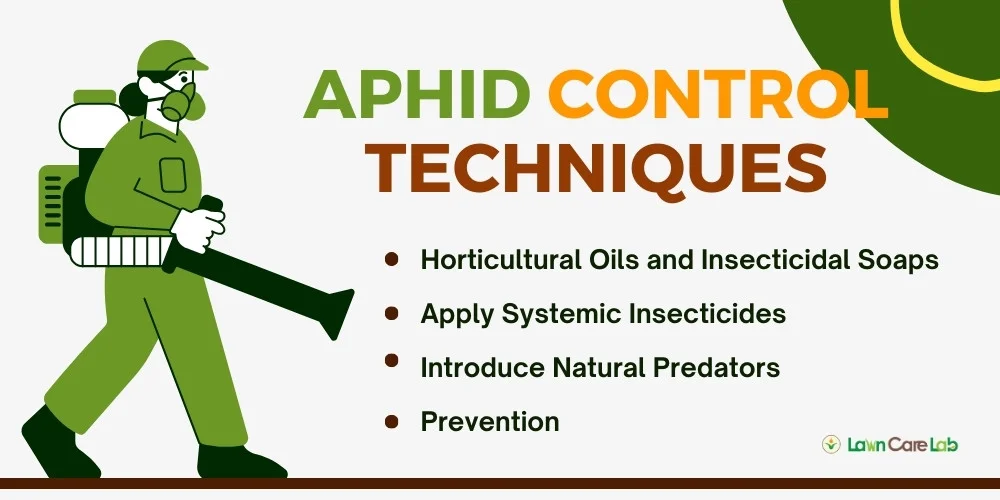
To keep aphids away from your lawn, you can use a combination of cultural, biological, and chemical methods, such as horticultural oils and soaps, systemic insecticides, beneficial insects, and preventative measures.
Use Horticultural Oils and Insecticidal Soaps
To get rid of aphids, use horticultural oils and insecticidal soaps. These eco-friendly solutions suffocate the aphids without harming your beneficial insects.
Let’s walk through the simple, three-step process for using these products:
- Prompt Intervention: Use these substances promptly upon detecting aphids. Immediate action can prevent further infestation.
- Comprehensive Coverage: Apply the solution to every part of the plant, as aphids often lurk in unexpected areas.
- Consistent Application: Apply the treatment as often as needed, this isn’t a one-time fix.
Adhering to these guidelines allows you to adopt a scientifically validated and safe method. Your lawn will be liberated from aphids, and your advantageous insects will thrive.
Apply Systemic Insecticides
In the face of a stubborn aphid invasion in your yard, you might consider systemic insecticides as a last resort. These potent substances are absorbed into the plant, offering prolonged defense against these troublesome intruders.
Systemic insecticides penetrate the plant’s internal system, rendering it poisonous to aphids upon feeding. However, they may harm beneficial insects in your yard.
As such, their use should be reserved for situations where other milder methods have been unsuccessful. Compliance with the manufacturer’s guidelines for application rates and safety measures is essential to mitigate risks.
Introduce Natural Predators
Considering the potential damage brought about by systemic insecticides, employing natural predators of aphids in your garden serves as a viable and eco-friendly solution.
- Ladybugs: These little critters have a penchant for aphid cuisine. Their presence can be increased by incorporating flowers they find appealing, like marigolds or cosmos, into your landscape.
- Lacewings: Famously dubbed ‘aphid lions,’ their offspring can ingest hundreds of aphids. The presence of plants such as angelica or coriander can draw them to your garden.
- Parasitic Wasps: These insects have an interesting way of reducing aphid numbers – they lay eggs inside the aphids, ultimately leading to their demise. Cultivating nectar-rich plants such as dill or yarrow can serve as an invitation for these wasps.
Implementing these tactics not only puts a check on the aphid population but also enriches the biodiversity of your garden, fostering a safer ecosystem for all.
Indeed, fostering this natural balance in your garden can be a testament to the harmony that exists in our environment.
Tips for Prevention
Watch out for yellow leaves, curling, and sticky honeydew to keep aphids away from your lawn. Water and fertilize in moderation to avoid excess plant growth. Encourage natural predators like ladybugs, lacewings, and wasps to keep aphid populations in check.
Prevent aphid infestations in your lawn by taking these measures. This helps maintain ecosystem balance while keeping your backyard free from pests.
Time to Call a Professional Exterminator
If you find your garden overrun by aphids, it could be time to bring in a seasoned exterminator. Professional pest controllers offer three fundamental benefits:
- Availability of robust pesticides: Professional exterminators use stronger solutions than those found in stores, which are more effective against severe infestations.
- Skilled application methodology: Pest control experts possess comprehensive knowledge of pesticide application. Their expertise ensures minimal environmental impact and health risks.
- Recommendations for future prevention: Besides eliminating the present infestation, they offer custom strategies to thwart potential future invasions.
They not only address the immediate aphid problem but also contribute to preserving your garden’s long-term health.
When your garden’s health is on the line, let experienced professionals handle it. They have the skills, the tools, and the knowledge to restore your garden to its former glory while ensuring it stays pest-free in the future.
Conclusion
You now have the necessary knowledge to address the issue of aphids in your garden. You can effectively control their spread by taking timely action, employing natural solutions, or even welcoming insects that prey on these pests.
If the task proves too challenging, seeking help from a qualified pest control expert is a viable option. These specialists possess the required expertise and equipment to address the issue thoroughly.
Maintaining a lush, aphid-free garden isn’t a chance occurrence but rather the result of your attentive and well-informed efforts.
So, keep your garden blooming and free from pests like aphids. It reflects not just on the health of your plants but also on the care and dedication you invest in them.
- Special Considerations and Techniques for Maintaining Sloped Lawns - July 15, 2024
- How Green Spaces Influence Community Interactions - July 8, 2024
- Lawn Fungal Diseases: Identification and Treatment - July 3, 2024

